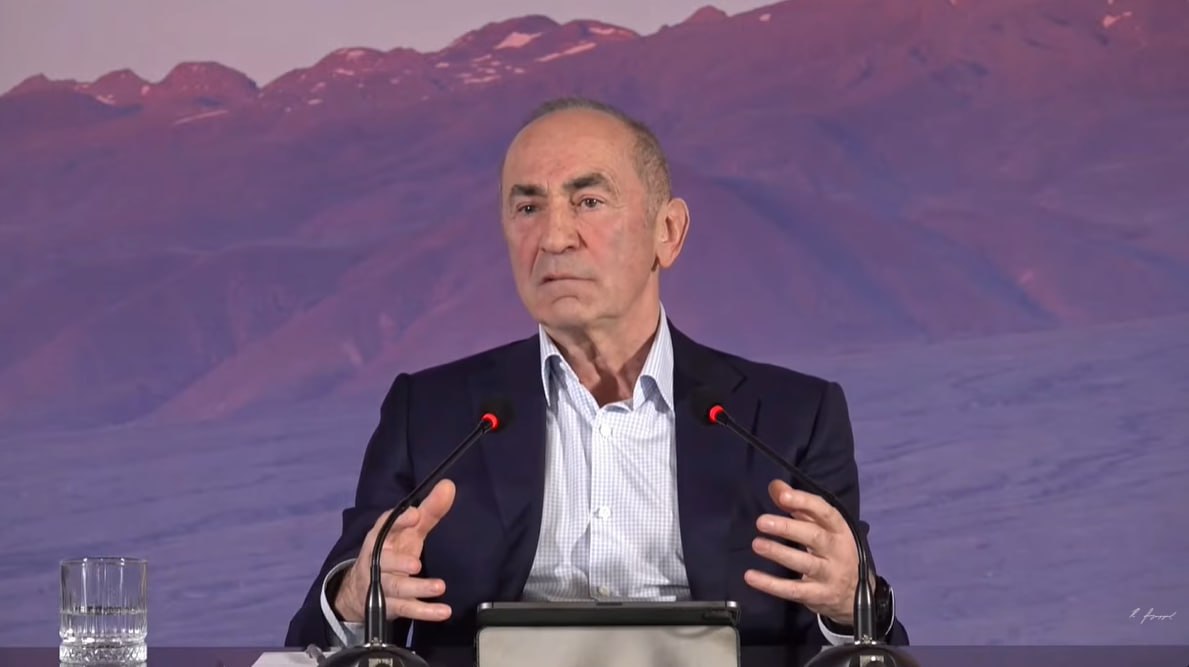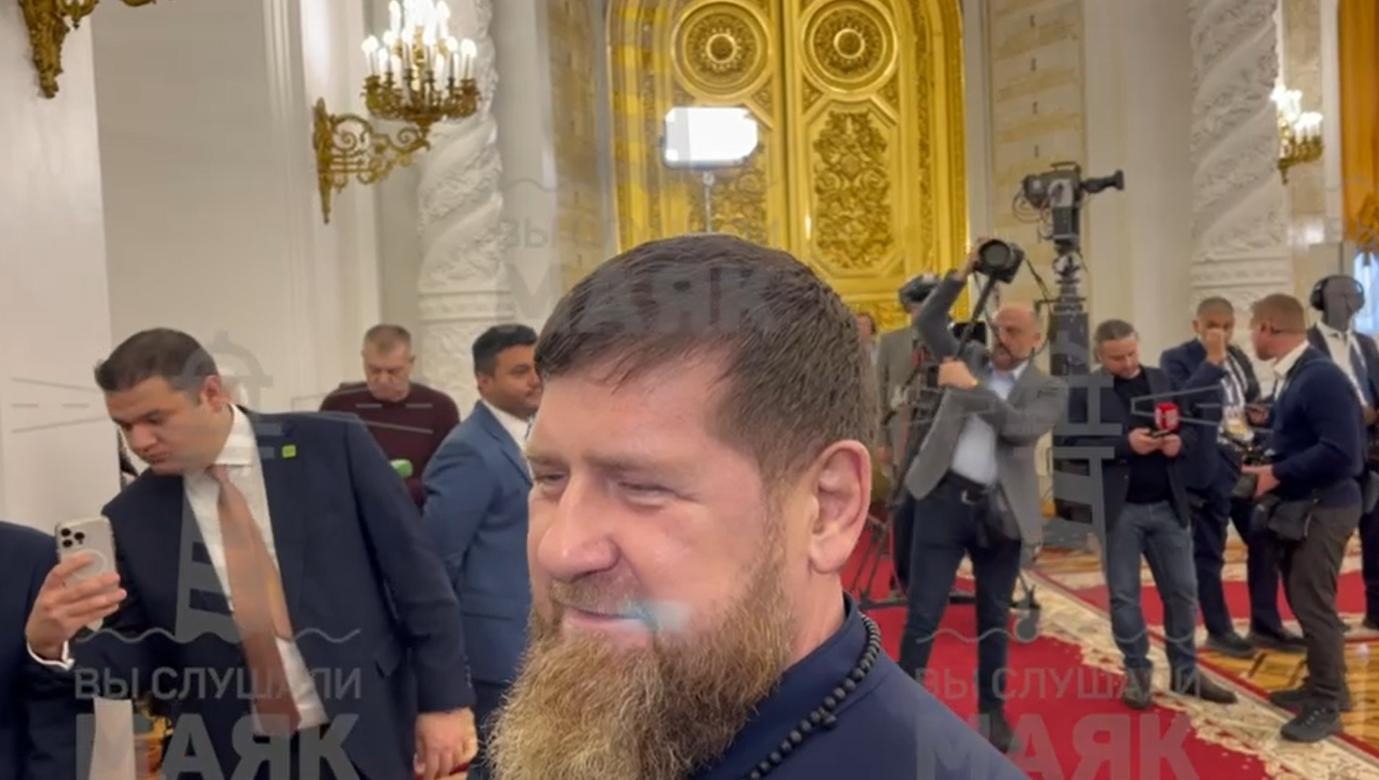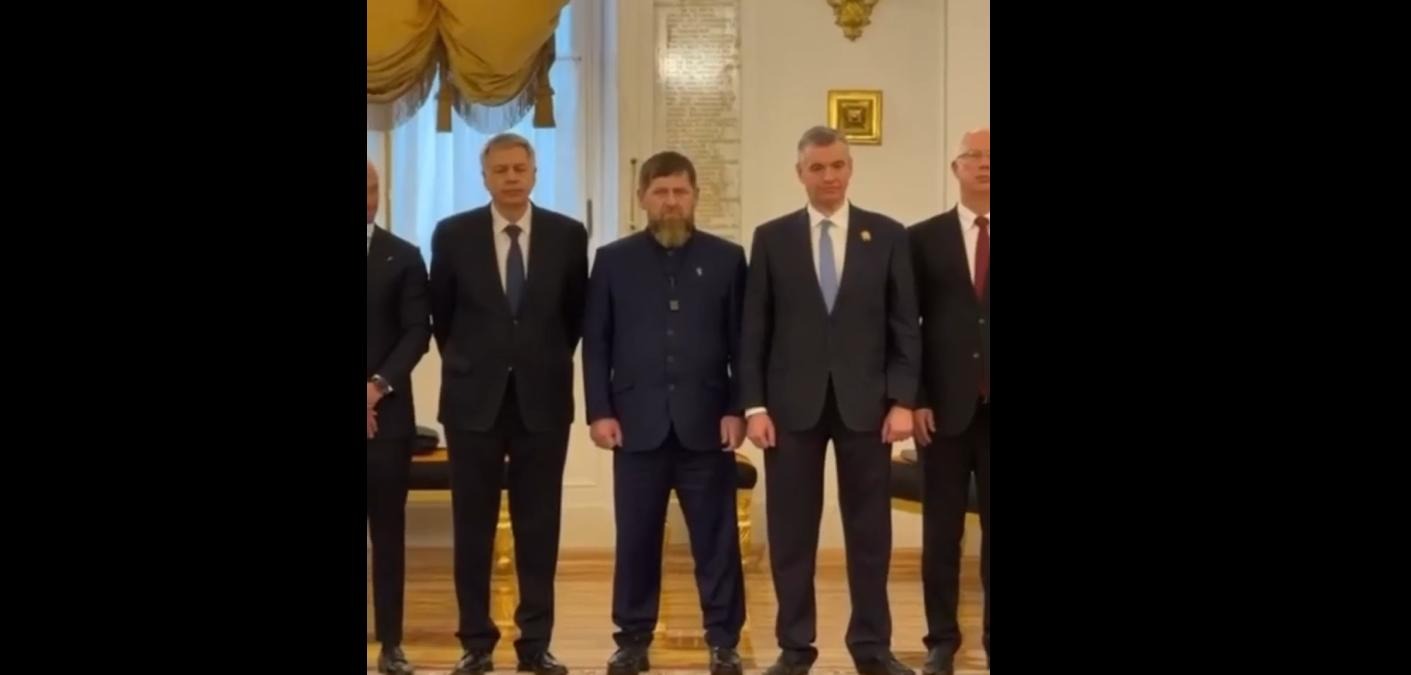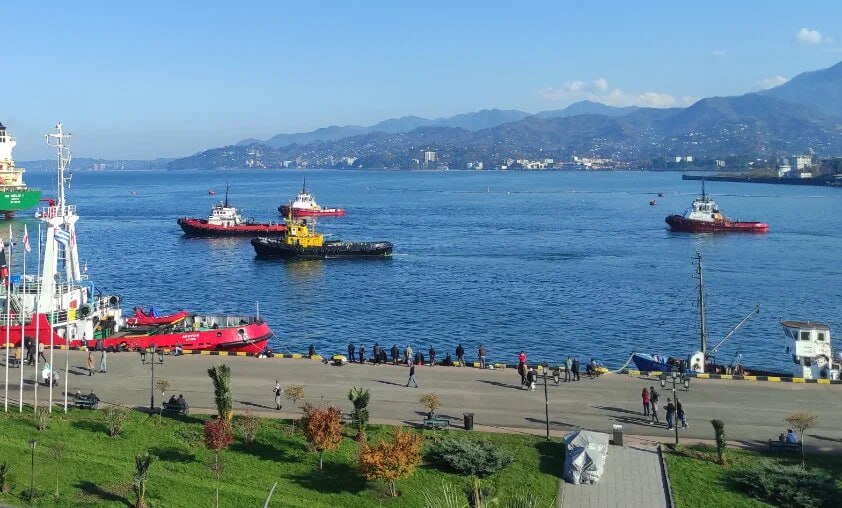Former Armenian President Robert Kocharyan warned against the current government's flippant attitude toward possible harsh responses from Moscow. He believes the authorities fail to grasp the scale of the potential impact Russia could have, including tariff revisions and export blockages.
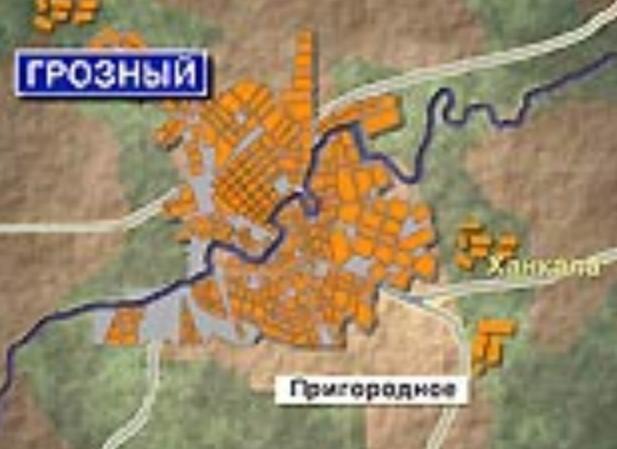
October 7, 2001
***
At night in the city of Gudermes, Usman Vakhidovich Saidulaev, born in 1977, was kidnapped from his home (Respublikanskaya St., 31). His father, Vakhid Saidulaev, described what happened like this: “They took him away, as usual, breaking into the house at three in the morning, lifting him out of bed. Without explaining or asking anything. That's how he was taken away, since then we haven't heard anything about him. My son did not take part in any illegal actions. We were looking for him. We contacted various authorities. Who remembers what they are?! We contacted everywhere we could, but to no avail.” As of January 31, 2008, when the Memorial Human Rights Center accepted a statement from relatives, nothing was known about the possible location of Usman Saidulayev. Witnesses to the abduction are parents, older brother, wife Aset, son Rasul, neighbors. According to them, the abducted man did not take part in hostilities either in the first war or in the second.
According to their testimony, Usman Saidulaev had already been detained once and even spent some time in prison. In January 2001, at a checkpoint near the railway bridge, he was taken out of a VAZ car and taken to the temporary detention center of the Gudermes District Department of Internal Affairs. There he was kept for almost six months, subjected to torture. Then he was sentenced to one year probation. He was kidnapped three months after his release from custody.
The kidnappers were in military uniform and wearing masks, but their departmental affiliation is unknown. They did not introduce themselves or present any documents. They spoke only Russian. We arrived in an armored personnel carrier, Ural vehicles (according to other sources, ZIL-157) and UAZ-452 (“tablet”). A ZAZ drove directly to the house; the rest of the equipment stopped 500 meters at the end of the street. It was not possible to record their side numbers and registration marks (most likely they were missing).
During the capture, Maret, the mother of Usman Saidulayev, was beaten. And his brother Ilmadi was laid on the floor and a gun was put to his head. Rough actions were also allowed against children.
Relatives filed statements with the Department of Internal Affairs, the FSB and the prosecutor's office. Already on October 10, 2001, the Gudermes prosecutor's office opened criminal case No. 21164 in accordance with Article 126, Part 2 of the Criminal Code of the Russian Federation. But after two months, i.e. On December 10 of the same year, due to the “impossibility of identifying the persons involved in the crime” (Article 195, paragraph 3 of the Code of Criminal Procedure of the RSFSR), it was suspended. At the time of contacting the Memorial Human Rights Center, the relatives did not know the status of the criminal case. They did not go to court with a complaint about the inaction of the prosecutor's office, nor did they file a claim with the European Court of Human Rights in Strasbourg.
Signs of Usman Saidulaev: height 165-170 cm, red hair, brown eyes, there is a post-operative scar on his stomach. He was wearing a blue tracksuit and slippers.
***
At dawn in the village of Gekhi, the Russian military surrounded the house of the Khachukaevs, who lived at the address: Pionerskaya St., 29. The residents were awakened by the noise of operating equipment. The military arrived in Ural and UAZ vehicles. They knocked, and when the inside asked who they were and what they needed, they ripped the door off its hinges and burst into the house. Without explaining anything, they lifted Duk-Vakha Vakhidovich Khachukaev, born in 1980, out of bed. Then they looked under the bed, examined the pillow and, without allowing the young man to get dressed, took him out of the house.
Frightened residents, mostly women, gathered in the corridor. They asked for an explanation of what was happening and why. The military did not say anything and took Duk-Vakha Khachukaev away in an unknown direction.
In the morning immediately after the end of the so-called. “curfew”, the relatives of the detainee went to the regional center. The day was a day off; it was not possible to find any of the authorities. Leaving Tuti Elbieva, the elderly mother of Duk-Vakhi Khachukaev, and her daughter-in-law at home, on October 8 they again went to Urus-Martan. This time we turned to the Urus-Martan branch of V. Kalamanov’s bureau.
Meanwhile, the military again arrived at their house in the village of Gekhi. Having driven the UAZ car into the yard and closed the gate, they began to search. At first it took place in the garden and outbuildings located in the yard. Tuti Elbieva and her daughter-in-law with their one-and-a-half-year-old child were locked in one of the rooms of the house. Soon neighbors approached the house and demanded that the search be carried out in the presence of witnesses. The military said that they would do without them and show everyone that they had not come in vain. People were forced to leave the yard.
Having completed the search outside, the military began to search the house. The women and child were taken out into the yard. During the search, photographs were taken with a camera.
At the end of the search, the military asked Tuti Elbieva to sign some kind of “document.” Before this, she was shown several cartridges that were allegedly found in an unfinished room of the house. The illiterate woman could not understand what she was asked to sign, but nevertheless was forced to “sign”, i.e. put a few lines under the paper handed to her by the military.
When the military left and the women began to collect things scattered throughout the house and put things in order, they discovered that a carpet, a Kodak camera, two gold rings, a mixer and other things had been stolen.
On October 10, the same military men raided their house for a second search. And this time, the requirements of the Code of Criminal Procedure of the Russian Federation regarding the grounds and procedure for conducting a search were grossly violated.
On October 12, a third search was carried out. Apparently, again unauthorized by the prosecutor's office, and again with the same violations. This time too, the Khachukaevs failed to establish to which power structure those who searched them belonged. One of the military men only said that he came from Makhachkala. When asked to name the person who sent them, another military man promised: “We’ll come back now and show him the big fig.” None of them began to say which power structure they belonged to and where the kidnapped Duk-Vakha Khachukaev was kept.
The relatives of Duk-Vakhi Khachukaev addressed the VOVD, the department of the Federal Security Service of the Russian Federation for the Chechen Republic, and the prosecutor's office of the Urus-Martan district for clarification about the searches carried out at their place. But all to no avail. It was not possible to find out the whereabouts of the abducted person. The intermediaries did not help either, who initially took up the matter, but then, under the pretext that they could not find out anything, refused.
As of the beginning of 2008, Duk-Vakha Vakhidovich Khachukaev was considered missing.
***
At dawn, in the village of Shelkovskaya, employees of Russian security forces kidnapped Maadi Lechievich Dzhanhuvatov, born in 1954, from his home (Mazhatova St., 2/2).
Neighbors said that a week before, he had already been taken to the police station and was released only the next day. The people who came for him again were armed, but without masks. They behaved extremely aggressively. Screams and swearing were heard from the house they broke into. Maadi Dzhanhuvatov was taken out with his hands clasped behind his back. Having been placed in a car waiting on the street, he was taken away in an unknown direction. In addition to neighbors, the wife and daughter of the abducted man witnessed the incident.
Memorial Human Rights Center does not have any information about the further fate of Maadi Dzhanhuvatov. After the abduction, he disappeared without a trace. When visiting Shelkovskaya station in September 2008, it turned out that his house had been empty for quite a long time. The wife and daughter most likely moved in with relatives. The kidnapped man was a native of the mountainous Nozhai-Yurt district.
According to neighbors, we were able to record some signs of the abducted person. He was of average height, thickly built, and dark-haired. He wore a mustache.
***
At 6 o'clock residents of the village of Prigorodnoye began a protest. The reason was the murder of 11-year-old Muslim Bisultanov committed the day before by the Russian military. Almost the entire local population came out to the rally. He was supported by residents of nearby settlements - the village of Gikalovsky, the village of Michurina, the village of Chechen-Aul and the village of Starye Atagi. Protesters blocked the Grozny-Shatoi road and stopped the movement of both civilian and military vehicles along it. A committee was elected. They put forward the following demands: stop shelling of populated areas, bloody “cleansing operations”, extortion at checkpoints, unauthorized searches, detentions and torture of people. The protesters called for an investigation into all crimes committed in Chechnya by the Russian military and to punish those responsible for them.
On the same day, representatives of the Grozny district prosecutor's office, the Ministry of Internal Affairs of the Chechen Republic and local television journalists came to meet with the participants of the action. But the people who came to the rally demanded the arrival of the special representative of the President of the Russian Federation for the observance of human and civil rights and freedoms in Chechnya, Vladimir Kalamanov, and the head of the Chechen administration, Akhmad Kadyrov. Expecting that they would be able to convey the demands to them personally, the villagers, with the permission of the relatives, did not bury the boy. Contrary to Muslim traditions, which provide for the funeral of the deceased on the day of death, the body of Muslim Bisultanov was buried only on October 8, that is, only on the third day after the boy’s death.
The protest continued on October 10. Vladimir Kalamanov and Akhmad Kadyrov had not yet arrived in Prigorodnoye.
On October 8, the protesters adopted an appeal, addressing it to the commander of the United Forces, the head of administration 41, the special representative of the President of the Russian Federation for the observance of human and civil rights and freedoms in Chechnya, the OSCE mission in the republic and PACE. It said:
“We, residents of the village of Prigorodnoye, Grozny district of the Chechen Republic, have repeatedly been exposed to mortal danger as a result of constant shelling by federal forces over the past year and a half after the end of active hostilities.
Once again, on October 6, 2001, at 10:40 a.m., an unexpected massive shelling of the village began, as a result of which 5th grade student Muslim Bisultanov, who was at that moment in his house, was killed. There are other wounded and houses have been damaged. It turned out that at that time a mine-sapper group was passing along the highway past the village.
11-year-old Muslim Bisultanov is the 42nd resident of the village among the civilians who died after the so-called end of hostilities. During the same period, more than 60 houses were destroyed, a building for funeral ceremonies, located within the boundaries of a rural cemetery, was destroyed, and a large number of cattle were stolen and killed. In most cases, the perpetrators of these crimes were sappers engaged in demining the Grozny-Shatoy highway, passing by the village of Prigorodnoye.
Village residents have repeatedly contacted you about these issues, but have not received any answer or reaction from you. Nevertheless, given the current situation, we ask:
1) immediately find and bring to justice those responsible for the shelling of the village of Prigorodnoye and the murder of a child (Muslim Bisultanov);
2) finally stop the lawlessness on the part of federal forces towards civilians;
3) stop bullying and extortion by Russian military personnel stationed at checkpoints;
4) provide assistance in obtaining passports for schoolchildren aged 14 years and older, which are not issued under various pretexts and upon receipt of which large sums of money are extorted;
5) control the flights of military helicopters at low altitude, right above the roofs of houses, causing fear in children, traumatizing the psyche of people (for this reason, in the village there are cases of heart attacks in patients with heart disease), in general, to protect us from this arbitrariness;
6) bring to the attention of village residents information about the measures taken against the perpetrators of these crimes.
Committee to hold a protest against the illegal actions of federal structures.”
***
At 19:00, up to 60 members of the All-Russian Federation of ChRI drove into the regional center of Achkhoy-Martan in three Ural and two UAZ vehicles.
They took away trucks from residents of the village of Katyr-Yurt, who were going to the forest to get firewood. According to local residents, there were no Russian military personnel at the checkpoints located at the entrance to the village. The militants easily passed them and fired at the police department building. The buildings of the VOVD, military commandant's office, military commissariat and sanitary and epidemiological station were attacked. On one of the streets of the regional center, militants shot at a UAZ car; policeman Turko Inkhadzhiev, born in 1960, was killed, and driver Shamil Ozdamirov was seriously injured. After the members of the ChRI Military Fleet left Achkhoy-Martan without losses and in an organized manner, Russian artillery struck it. The shelling continued for several hours, and all this time local residents hid from the shells in the basements.
It is known that the militants, having retreated to the village of Yandi, left their cars on its outskirts and went towards the foothill forest.
***
At about 21:00 in the village of Gekhi, a group of armed people approached the house of Sultan Bataev, born in 1936. (according to other sources, born in 1942). They called the owner and spoke Russian. He came out. His wife came out next and saw that there were four armed men in their yard. Having demanded that Sultan Bataev go with them and without explaining anything further, they took him by the hands on both sides and led him to the gate. The woman ran into the house to get clothes and heard shots. Running out into the street, she saw her husband’s body near the gate. He was shot three times: one in the head and two in the chest. There was no one on the street anymore. After committing the murder, the criminals fled.
***
At night, in the town of Ivanova in the Staropromyslovsky district of Grozny, a robbery was committed. On Pogranichnaya Street, two unknown masked intruders, armed with special weapons with silencers, entered an apartment on the second floor of the building and robbed Mukharbek and Svetlana N-ykh.
The couple were handcuffed, fastened to a radiator and demanded money and jewelry. They spoke Russian without an accent. Having received a refusal, the husband’s rib was broken, his internal organs were knocked off, and his wife was stabbed in the leg. After threatening to cut both their throats, the couple gave them everything they had of value. When leaving, the criminals threatened with violence if the spouses dared to contact law enforcement agencies.
The victims confidently stated that they were attacked by the Russian military.
From the book “People Live Here”, Usam Baysaev, Dmitry Grushkin, 2006.
